Macron: Resolution of Ukraine crisis may ‘take time’ as security guarantee row persists
French President Emmanuel Macron says the resolution of the Ukraine crisis may take months, after he held talks with Moscow and Kiev over the escalating tensions between the two sides.
Macron said after meeting with his Ukrainian counterpart, Volodymyr Zelensky, in Kiev on Tuesday that it was imperative to "find ways of bringing viewpoints together and lowering the tension."
The French president said such a process would "take time," but added that his discussions with Zelensky and Russian President Vladimir Putin a day earlier in Moscow had helped address the issue of "how to change."
Macron also said he had made proposals of "concrete security guarantees" to Putin following the pair's meeting in the Russian capital and that the Russian leader, for his part, had suggested some of the ideas could help ease the situation between Moscow and Kiev.
"I think it's entirely likely that some of his ideas and suggestions, even if it's probably too early to talk about them, could become part of the basis for our next joint steps," Putin said after the talks.
French officials told journalists after a five-hour meeting between Macron and Putin that there was hope for a structured dialogue with Moscow on collective security, stressing that the Russian leader was willing to discuss de-escalation.
The officials quoted Putin as saying that Russia "would do everything possible to find compromises acceptable to everyone," also calling on Washington and the US-led military alliance to accept Russia's demands.
Relations between Russia and the West have hit a new low in recent weeks. The United States, its NATO allies, and Ukraine have accused Russia of amassing troops near Ukraine's border for a possible invasion. Moscow rejects the allegation and insists that deployments are defensive in nature.
The US military has placed 8,500 troops on heightened alert to prepare for deployment in Eastern Europe and bolster the NATO presence in the region. The US State Department has also approved shipments of US-made missiles and other weapons from NATO allies Lithuania, Latvia, and Estonia to Ukraine.
Russia has demanded legally binding guarantees from NATO that it will halt its eastward expansion and return to its 1997 borders. Moscow also demanded that the military alliance never admit Ukraine as a member.
However, the Kremlin said Russia's main security demands had not been taken into account by the US after Washington delivered written replies to Moscow.
Kremlin calls on West to accept Russian demands
Kremlin spokesman Dmitry Peskov said the de-escalation of the Ukraine crisis was "urgently needed, because tension is growing day by day," but he complained that the United States and NATO continued to disregard Russia's security demands.
"On the fundamental points, unfortunately, we did not receive a response. Therefore, this topic remains open in the full sense of the word and remains the most important for us," Peskov told reporters on Tuesday.
"But so far, of course, we can't say that any real solutions are being probed. We do not feel or see the willingness of our Western partners to take our concerns into account."
The Kremlin official denied media reports that Macron and Putin had reached an agreement on Ukraine, accusing the West of ramping up tensions by sending planeloads of arms and ammunition to Ukraine.
Ukraine: We won't cross our red lines
Ukraine's Foreign Minister Dmytro Kuleba told a briefing on Tuesday that Kiev welcomed discussions with the visiting French president on Russia but would not be forced to cross its own red lines.
"We are all waiting with interest for the signals that Mr. Macron brought from Moscow," Kuleba said, speaking alongside visiting counterparts from Austria, the Czech Republic, and Slovakia.
"But I have repeatedly said that we are open to dialogue, we are constructive, we are looking for a diplomatic solution, but we will not cross our red lines and no one will be able to force us to cross them."
First US troops arrive in Romania to bolster eastern flank
Romanian Defense Minister Vasile Dincu said on Tuesday that the first US troops reinforcing NATO allies on the alliance's eastern flank had arrived in the country.
"The Americans have arrived," Dincu said. "Over 100 specialist US soldiers together with our logistics specialists are preparing, which means it will not be long before the rest of the troops arrive."
The United States is sending nearly 3,000 extra troops to Poland and Romania to shield eastern Europe against what it claims to be a planned Russian invasion of Ukraine. The Pentagon has announced that it will relocate a squadron of around 1,000 US service members from Vilseck, Germany, to Romania.
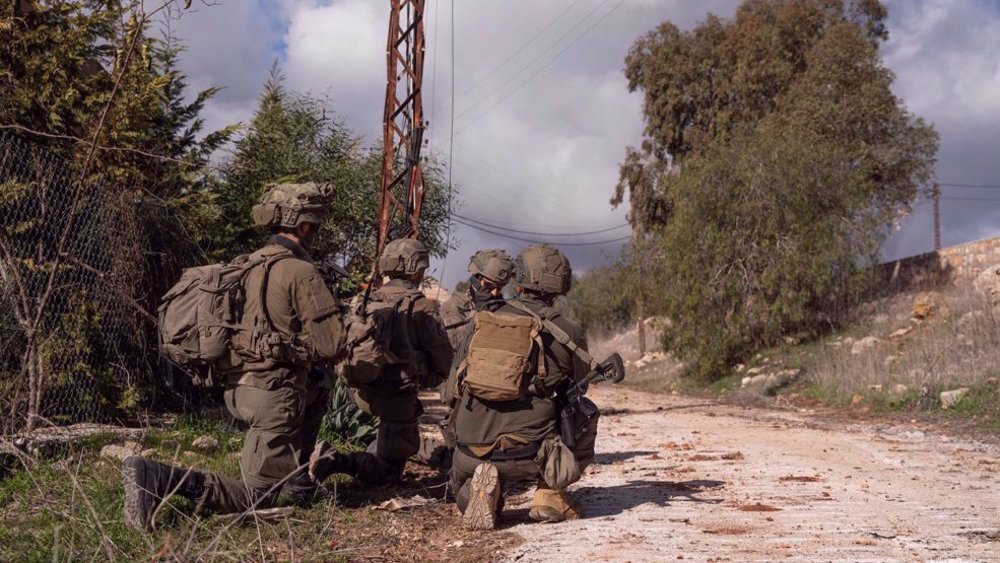
US, France want mercenaries deployed in south Lebanon: Report
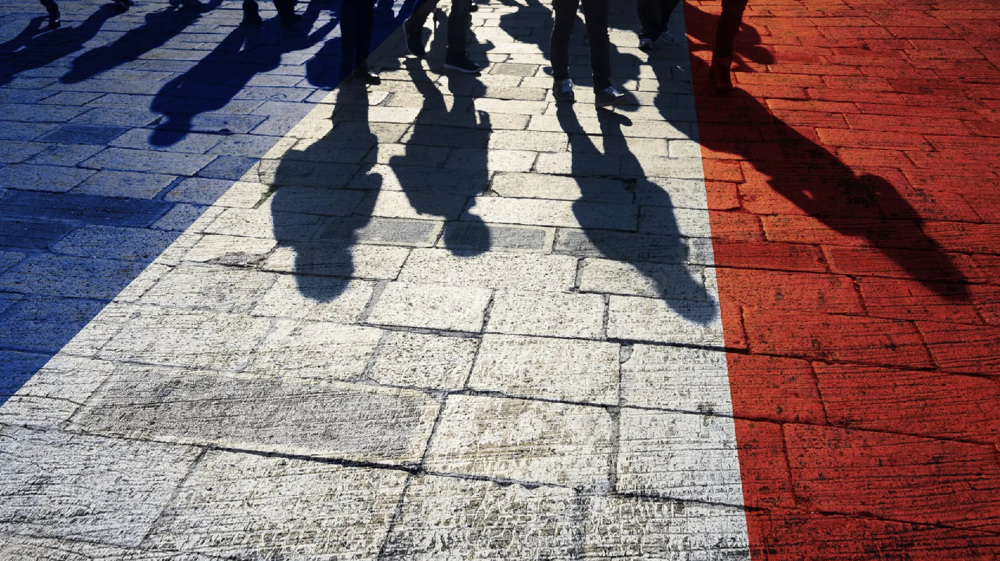
French immigration language test sets applicants for failure: Report

NATO faces 'moment of truth' on future of military alliance: France
Senior Shia cleric arrested, son attacked in Syria: Reports
VIDEO | Israel's West Bank aggression
VIDEO | Palestinian family denied reunion with son after his freedom from Israeli jail
If enemy makes any mistake, Israel's peace will be at risk: Iran top cmdr.
US halts funding for Palestinian Authority security forces
Iran to connect all 20-household villages to broadband by 2028
WHO: Gaza children are in danger of polio outbreak
VIDEO | Press TV's news headlines


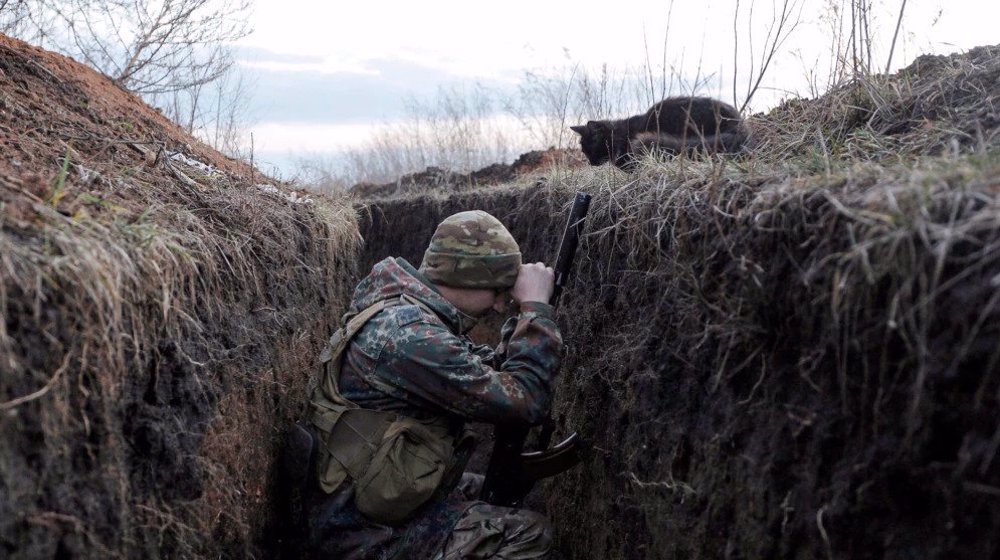
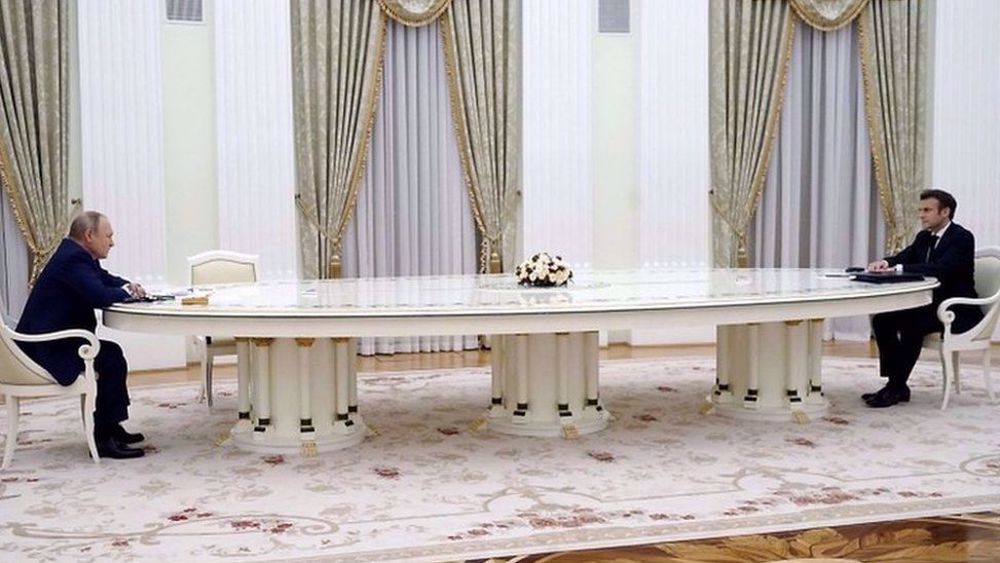
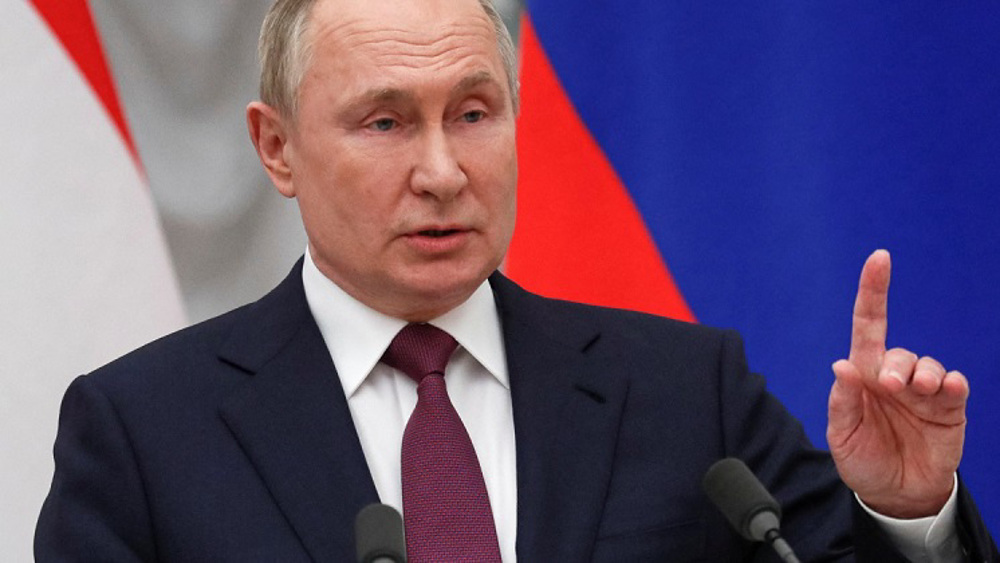




 This makes it easy to access the Press TV website
This makes it easy to access the Press TV website